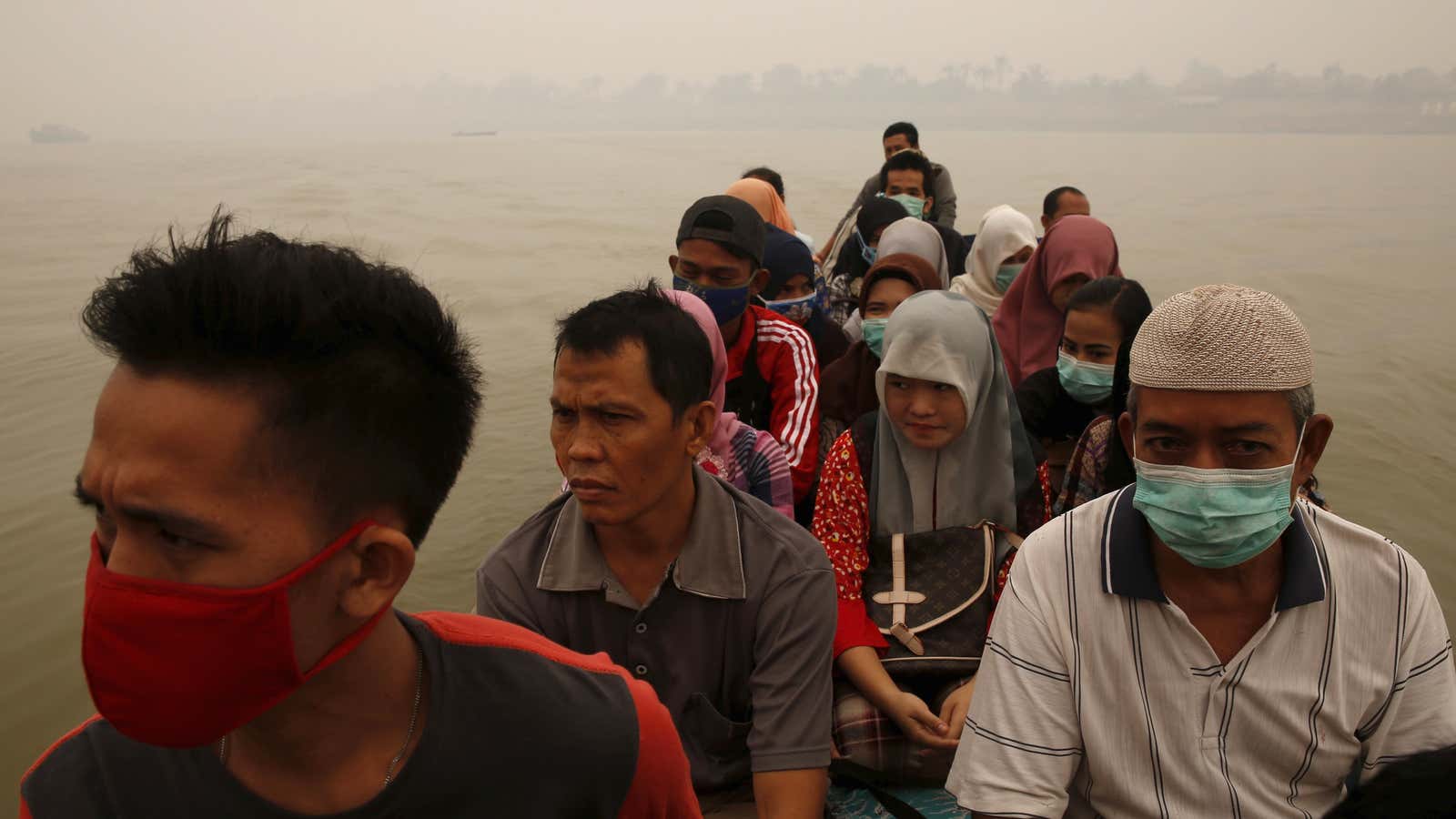On Dec. 10, 1948 representatives from around the world met in Paris to sign the United Nations Universal Declaration of Human Rights in the aftermath of World War II. Sixty-seven years later, representatives from around the world are meeting there again to negotiate another monumental agreement: an international deal on climate change.
It may not seem like these global events are related but, in fact, climate change is one of the greatest human-rights challenges of our time. The signers of the Universal Declaration agreed that all people have the right to basic sustenance, protection, and freedom; including rights to food, health, shelter, and self-determination.
From the devastation caused by Typhoon Haiyan in the Philippines, to the severe drought exacerbating the refugee crisis in Syria, extreme weather continues to result in severe, and often irreversible, social and economic harm to millions of people around the world. From hunger to homelessness, forced displacement, and loss of livelihoods, human rights are in jeopardy.
And so, in the spirit of what their predecessors achieved 67 years ago, negotiators at the climate talks in Paris must not only deliver a global deal that curbs climate change, but also one that upholds human rights.
In its recent report, “Extreme Carbon Inequality,” Oxfam looks at consumption emissions of rich and poor citizens in different countries based on data from the World Bank, Organization for Economic Co-operation and Development (OECD), and the Centre for Global Development climate-change vulnerability index. We estimate that the world’s richest 10% produce half of carbon emissions, while the poorest 3.5 billion account for just a tenth.
The poorest are often the most vulnerable and least prepared to cope with the effects of climate change, regardless of nationality. Droughts, floods, and superstorms have hit both rich and poor countries alike, from here in the United States, to the Philippines and the South Pacific island-nation of Tuvalu. Women, especially those in rural communities, are most at risk, since they often depend on agriculture and have few other opportunities to make a living.
Effectively addressing climate change means upholding existing principles of human rights in our efforts to implement climate action, especially by protection of human rights of indigenous peoples, women and girls, people with disabilities, and migrants and refugees. That means that as actions are taken to address climate change, they must not be made at the expense of peoples and communities or their rights. For example, the human rights of indigenous communities must not be disregarded when investing in clean energy projects, such as wind and solar. And that the lack of rights for women farmers is taken into account when responding to food crises in communities where women traditionally lack access to rights, information,and credit. Helping women and other vulnerable groups to claim their rights is essential to climate justice.
And it also means that the United States and other countries contribute their fair share of financing support for mitigation, adaptation, and loss-and-damage efforts in a manner that prioritizes the needs of the poorest and most vulnerable.
A human rights-based approach is not only the moral thing to do, but it would also lead to more sustainable and effective results in climate action. That’s because a human rights perspective offers guidance for addressing climate change by providing a holistic picture of the connections between the economic, social, cultural, and political dimensions of the problem.
We are at a unique moment in history where we have the opportunity to ensure millions of people’s basic rights are protected in the future. Human rights language is in the draft agreement now, and it must stay there.
The negotiators know that our planet cannot wait. They must achieve a strong and substantive agreement that addresses climate change while also offering human rights protections for vulnerable and marginalized peoples here at home and around the world. Including human rights language in the final agreement will strengthen the stated objectives by providing concrete measures to protect people from the harms of climate change.
